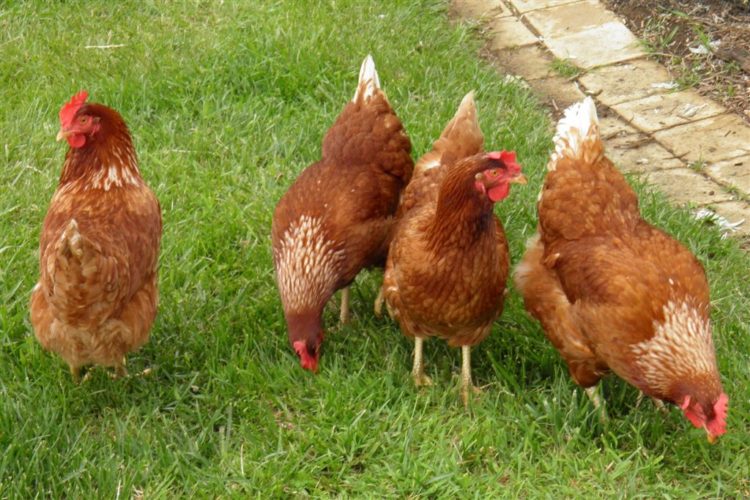By Lucy Caulkett-
The welfare code for laying hens has today been updated as part of a programme of reforms to protect and raise the welfare of animals. Strengthened statutory guidance has now been put in place for keepers and owners of laying hens and pullets on how to meet the needs of their birds and enhance their welfare.
Under the Animals Welfare Act, 2006, a person must not attend to the animal unless he is familiar with any relevant code of practice and
in relation to the animal, and has access to the code of practise. It is also their responsibility to ensure that anybody they put in charge of the animal has access to the code of practise too.
This welfare code has been updated to reflect the very latest advice from vets and animal husbandry developments, as part of a programme of reforms to safeguard and enhance the welfare of animals, the Minister for Animal Welfare, Lord Gardiner announced today.This Code is made under the Animal Welfare
Act 2006 and makes owners and keepers responsible for ensuring that the welfare needs of their animals are met, they have a suitable environment, and
are fed an appropriate diet and are protected from pain, injury, suffering and disease. The code has been applied under Section 14 of the Animal Welfare Act 2006 which authorizes a national authority to revise from time to time, codes of practice for the purpose of providing practical guidance in relation to the Act. It applies to anyone in charge of an animal whether on a temporary or permanent basis.
The Code was set up to help all those who care for laying hens and pullets to practice good standards of stockmanship to safeguard bird welfare. Without
good stockmanship, animal welfare can never be adequately protected. Following these regulations will help keepers to maintain the standards required to comply with legislation.Those who have care for laying hens and pullets are expected to demonstrate caring and responsible planning and
management. Other expectations of carers of hens include skilled, knowledgeable and conscientious stockmanship, appropriate environmental design; considerate handling and transport.
The welfare of laying hens and pullets is considered within a framework that was developed by the Farm Animal Welfare Committee (FAWC), also known
as the ‘Five Freedoms’. The five freedoms are freedom from Hunger And Thirst, ready access to fresh water and a diet ,a diet full of health and vigour.
Freedom From discomfort by providing an appropriate environment including shelter and a comfortable resting area. This includes freedom from pain, injury, or disease by prevention or rapid diagnosis and treatment. Hens must also be able to express normal behaviour by providing sufficient space, proper facilities, and company of the animal’s own kind. They must also be able to exercise the freedom from fear and distress by ensuring
conditions and treatment to avoid mental suffering.
Under the widely unknown Act, any person who owns an animal shall always be regarded as being a
person who is responsible for it. Such an individual person shall also be treated as
responsible for any animal for which a person under the age of 16 years of
whom he has actual care and control is responsible.
Minister for Animal Welfare, Lord Gardiner, said:
”We have some of the highest animal welfare standards in the world and are going further in a number of areas, including our plans to raise maximum sentences for animal cruelty to five years and making CCTV mandatory in abattoirs.
This code was carefully consulted on with industry experts, and uses the most recent scientific and veterinary advice to ensure this clear guidance provides the best advice to owners and keepers to help ensure the high welfare standards of their animals.
Animal keepers are now expected to provide a more enriched environment for all laying hens to enable them to display more of their natural behaviours such as foraging, helping to ensure more fulfilled and healthier animals. The user-friendly codes also provide detailed guidance to animal keepers on how to assess the welfare of their animals, as well as on contingency planning to help ensure the welfare of their animals during any emergencies.
The codes will be used by enforcement bodies including Animal and Plant Health Agency inspectors and local authorities when investigating allegations of poor welfare to look at whether animal welfare standards are being met”.

Minister For Animal Welfare, Lord Gardiner
All animal owners are expected to be fully aware of the law surrounding the pets they own, but many times animal owners are ignorant about what is legally expected of them. Most owners will be on the right side of the law by using common sense, but the new code announced today puts an extra requirement on owners not only to abide by the five freedoms contained in the code, but also to be in possession of the written code, and make the code available to anybody under whose charge they place an animal. This means a n owner of a hen will be breaking they law if they do not at least have a copy of the code in their possession, and this doesn’t necessarily mean the code be on their person every day. It code should be available in their property as evidence they are mindful of its requirements.




